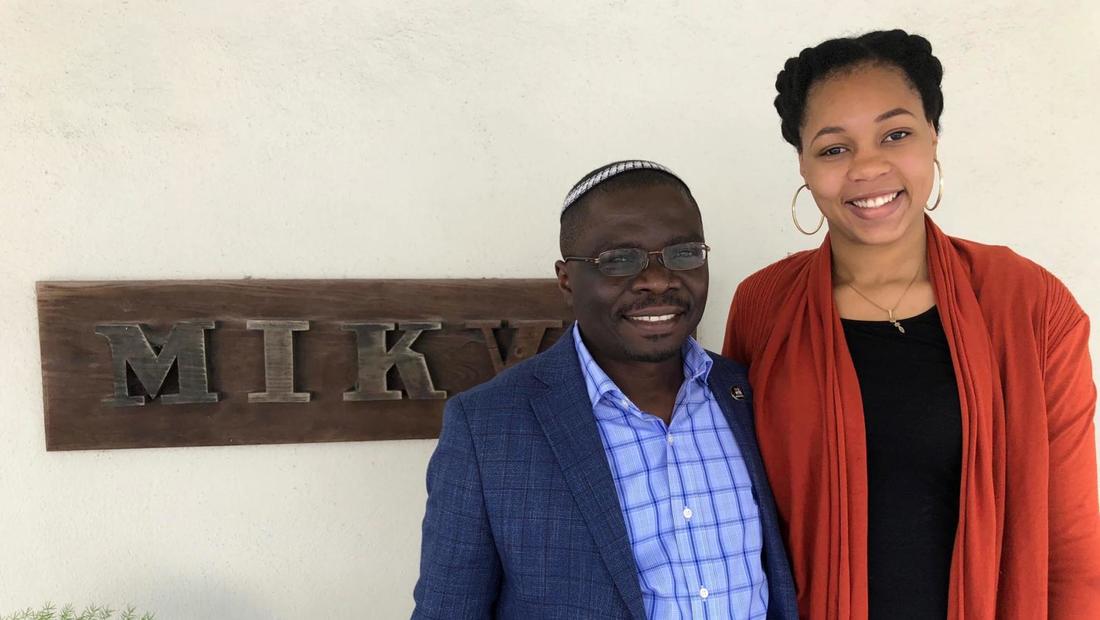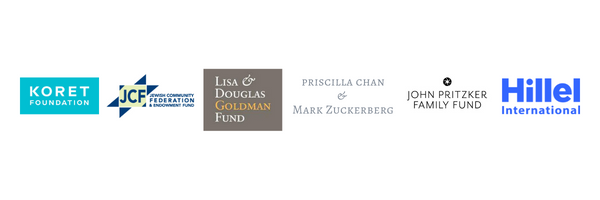|
This article was originally published by MyJewishLearning on November 14, 2018 Jewish& is a blog by Be’chol Lashon, which gives voice to the racial, ethnic and cultural diversity of Jewish identity and experience. The original multicultural people, Jews have lived around the world for millennia. Today, with globalism and inclusion so key in making choices about engaging in Jewish life,Jewish& provides a forum for personal reflection, discussion, and debate. Black hair is a contentious and highly personal topic. Whether we address its beauty and versatility or mock its propensity to stand out, the question remains: What do you do with it? The black hair question was never more spiritually apparent to me than in the days before my conversion to Judaism. The final act for one to halachically (according to Jewish law) become a part of the Jewish community is to be questioned by a beit din—a panel of at least two rabbis and another Jewish witness—and then, after receiving their approval, thrice fully submerge yourself in a mikvah, or ritual bath. It seems pretty straightforward. Yet for many black women living under the American standard of beauty, myself included, the mention of the words “submerge,” “water,” “hair,” and “wet” can be alarming, particularly after spending many hours and possibly hundreds of dollars on our perfectly quaffed braids, weaves, or straightened tresses.
In order to get into a mikvah, one must take off anything temporary: makeup, jewelry, cuticles, scabs, bandages, nail polish, hair dyes, and hair extensions. In my case, just four days earlier, I spent nine-plus hours box braiding my own hair. I was very proud of it. Braiding my own hair had become part of my college routine, so much so that I felt as if I were unrecognizable to others without braids. Even with the rise of the natural hair care movement, I still preferred my protective braided style. It made me feel good when I got compliments on my self-styled hair, and it was a bonus that no one over the age of six would ask or attempt to touch my hair like they did when I wore it in a fro. I didn’t enjoy ducking and diving to avoid reaching hands feeling up my hair as if it were a free-for-all interactive exhibit. It makes me feel like I lack agency over my own body. When I was told I wouldn’t be allowed to go into the mikvah with extensions, I panicked a little. Was I so vain that I was going to let my hair stand in the way of fully embracing who I am? The on-one-foot answer to this question is an emphatic, no. Yet I worried how I would be perceived. I was worried I would get looks of disgust and disapproval from the rich housewives of San Francisco’s Pacific Heights neighborhood as I, a tall Black woman with “unkempt” hair, walked through “their” neighborhood, where the community mikvah is found. I worried that the mikvah personnel would give me the confused side-eye and ask me what I was doing there. I had been brainwashed by Eurocentrism to believe that my hair was unmanageable and not beautiful un-styled. I worried what kind of Black person I would be perceived as. I worried that I wasn’t Jewish enough for this sacred Jewish space. I worried that, after nearly six years of dedication to the study of Torah and to the Jewish community, I would be rejected. I carried all of that anxiety in my braids. The purpose of removing everything that is temporary before getting into the mikvah is to be before G-d in the same way that you were when you came out of the womb, the idea being that you are your most authentic self when unadorned. The mikvah is a physical representation of spiritual transition. I couldn’t let some hair get in the way of my transition, and I wouldn’t allow myself to back out at the last minute because of my anxieties surrounding rejection. When I arrived at the mikvah with my hair in its most natural state, I was greeted warmly by the mikvah attendant and my anxiety was quickly replaced with anticipation. The mikvah attendant answered all my questions and did her best to make me feel comfortable while I waited for the rabbis to arrive. Between the mikvah attendant’s calming presence and the rabbis’ words of encouragement and approval, my anticipation shifted toward excitement. After my certificate of conversion was signed, I showered for the second time in a three-hour period to ensure that I was 100% free of any detritus I may have collected on the five-minute Uber ride from my home to the mikvah. I exited the shower into the mikvah room and was checked by a female rabbi for any loose hairs, missed polish or flaking skin on my extremities. Then I walked down the seven steps into the water of the mikvah. As I descended I thought about the most influential women in my life who, although they may be unaware, helped me find my footing in the world. I thought about the creation story and how in this moment I felt physically part of it. I thought about how these steps were leading me into myself. With each dunk into the water, I prayed with the rabbis who were sequestered behind a door. Dunk one, the ha-tevilah—for the commandment of immersion. Dunk two, the Shehecheyanu--for this sacred moment. Dunk three, the Shema—an affirmation, a thanksgiving, and a declaration. I was allowed to take time alone in the water to reflect on the choices I had made: choosing to be guided by the Torah, choosing my community, and choosing myself. After I emerged from the mikvah, platted my hair, and dressed, I was greeted with a chorus of “mazel tovs!” I had finally stepped confidently into myself. Comments are closed.
|
AboutCheck out what our community is thinking and doing. Archives
August 2023
Categories |
CONNECT WITH Us
We are supported through meaningful communal donations and our very generous Funders.


 RSS Feed
RSS Feed
